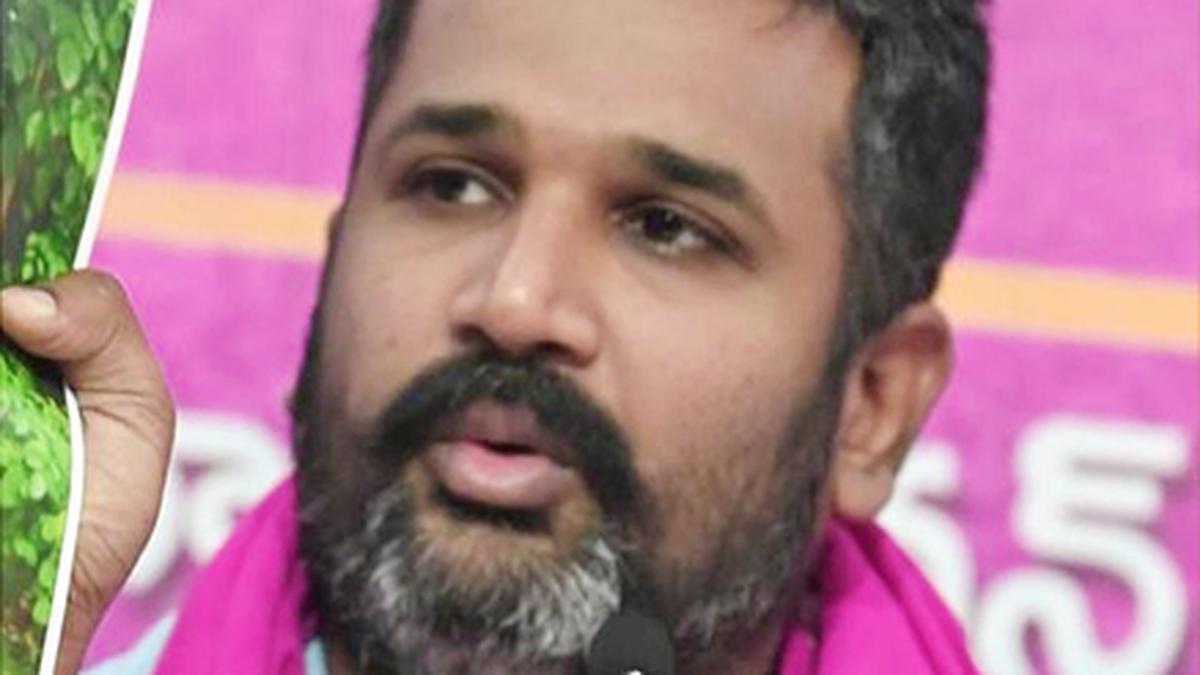 |
|
The Bharat Rashtra Samithi (BRS) in Telangana has launched a strong critique of the state government's handling of investments allegedly secured during Chief Minister A. Revanth Reddy's recent trip to the World Economic Forum in Davos. BRS leader Manne Krishank has publicly demanded the release of a white paper detailing these investments, alleging that the Chief Minister's visit was essentially a public relations exercise designed to create a false impression of economic success. This demand underscores a significant political rift within Telangana, with the opposition party directly challenging the government's claims and demanding transparency and accountability. The controversy highlights the inherent difficulties in evaluating the actual impact of such high-profile events on regional economic development, particularly when claims are made about significant capital inflows without concrete evidence of their materialization. The subsequent lack of verifiable outcomes fuels public skepticism and provides fertile ground for political point-scoring.
Krishank's accusations are centered around the lack of tangible results from agreements purportedly reached during the Davos visit. He specifically points to the absence of any progress on investment pledges announced during the previous year's event, totaling a substantial ₹40,000 crore. This figure, if accurate, represents a significant potential boost to Telangana's economy; however, the BRS leader's claims suggest that these pledges have not translated into real investment or job creation. This lack of progress not only raises questions about the efficacy of the government's investment attraction strategies, but also exposes the potential for inflated claims and misleading representations to the public. The discrepancy between promised investments and actual outcomes creates a credibility problem for the state government, fueling distrust among citizens and potentially deterring future investors who might be wary of unfulfilled promises.
The BRS's criticism also draws attention to the inherent challenges in assessing the long-term effects of high-profile international economic gatherings like the Davos Forum. Many such events generate considerable media attention and promises of future investment, but converting these pledges into tangible economic activity often proves difficult. Factors such as bureaucratic hurdles, regulatory uncertainties, and the complex negotiations required to finalize investment agreements can often delay or prevent the realization of stated investment targets. The BRS is effectively leveraging this inherent difficulty to critique the government's performance and highlight the discrepancies between grandiose pronouncements and tangible economic benefits for the people of Telangana. The party's call for a white paper represents a strategic move to put pressure on the government, forcing transparency and potentially exposing any shortcomings in its investment promotion strategies.
Furthermore, the BRS has pointed to the past pronouncements of the Chief Minister himself, highlighting his past skepticism of Davos investments when he was in the opposition. This inconsistency further fuels the party's argument, suggesting that the current claims represent a shift in political stance rather than a genuine reflection of economic progress. This change in rhetoric casts a shadow over the credibility of the government’s current claims. The use of this past rhetoric adds another layer to the political strategy of the BRS, suggesting a deliberate attempt to undermine the Chief Minister’s credibility and highlight the perceived lack of accountability within the government. The case serves as a reminder of the importance of rigorous oversight and transparent reporting on government claims related to economic development, particularly those resulting from high-profile international events.
The ongoing debate over the Davos investments underscores the broader need for greater transparency and accountability in government dealings related to economic development. The BRS's demand for a white paper is not simply a political maneuver; it represents a call for the public to have access to the necessary information to assess the government's performance in attracting investment and fostering economic growth. The ultimate success of the BRS's efforts will depend on the government's response and the level of scrutiny given to the issue by the media and the public. The absence of tangible outcomes, combined with the BRS's strong political challenge, creates a critical juncture in Telangana's political and economic landscape. The public’s perception of the government's competence and integrity hangs in the balance, contingent upon a transparent and comprehensive accounting of the investments claimed to have been secured in Davos.
